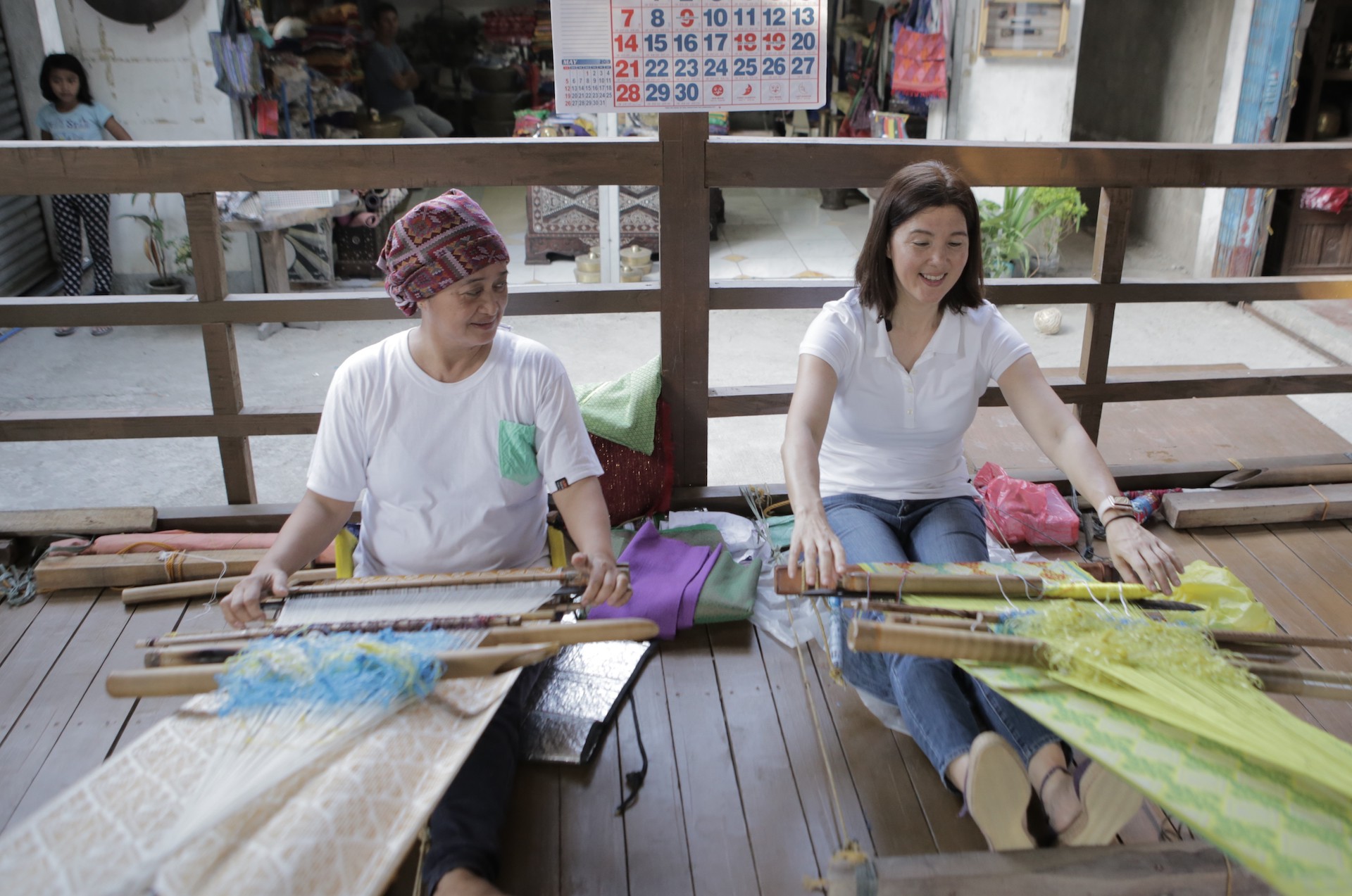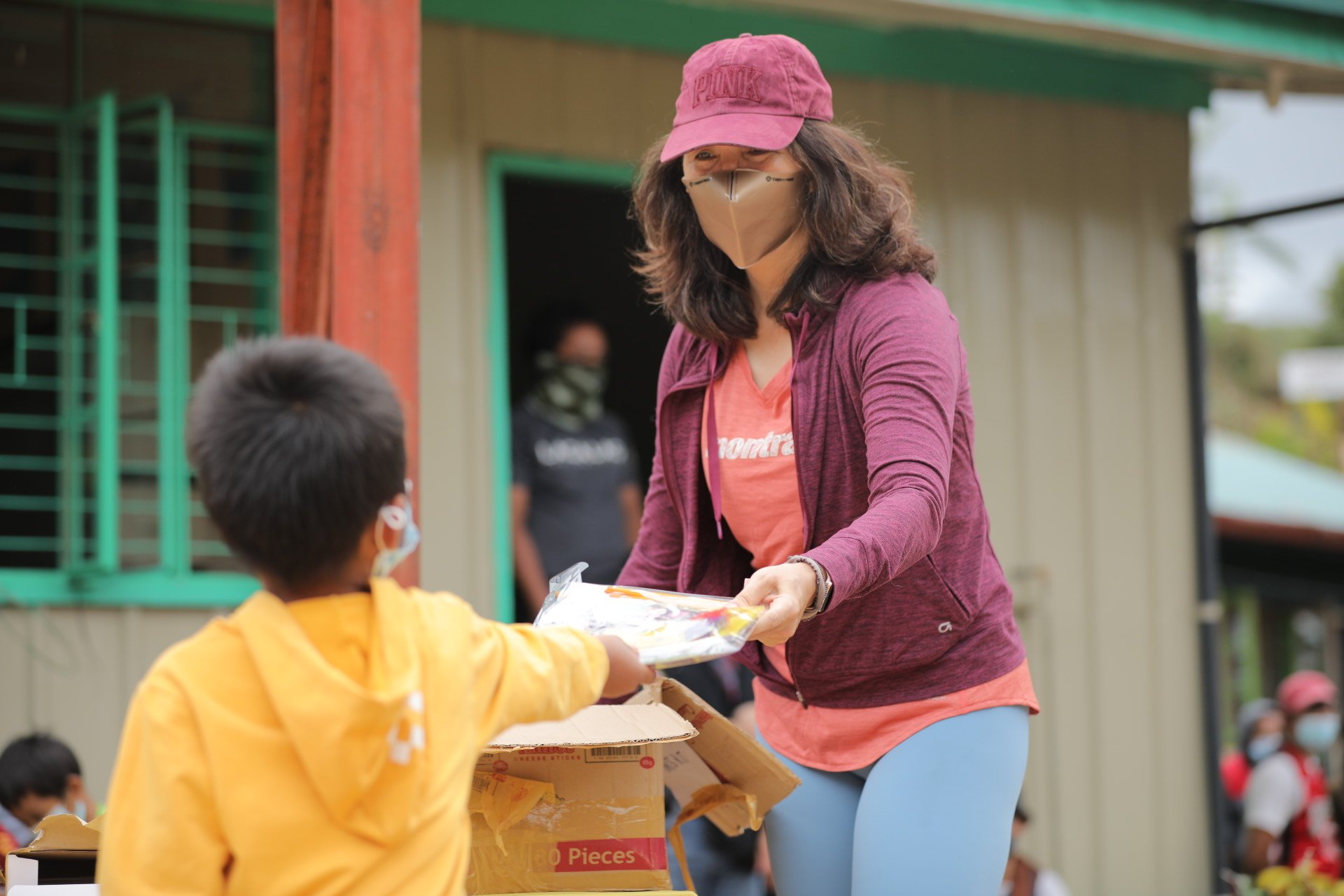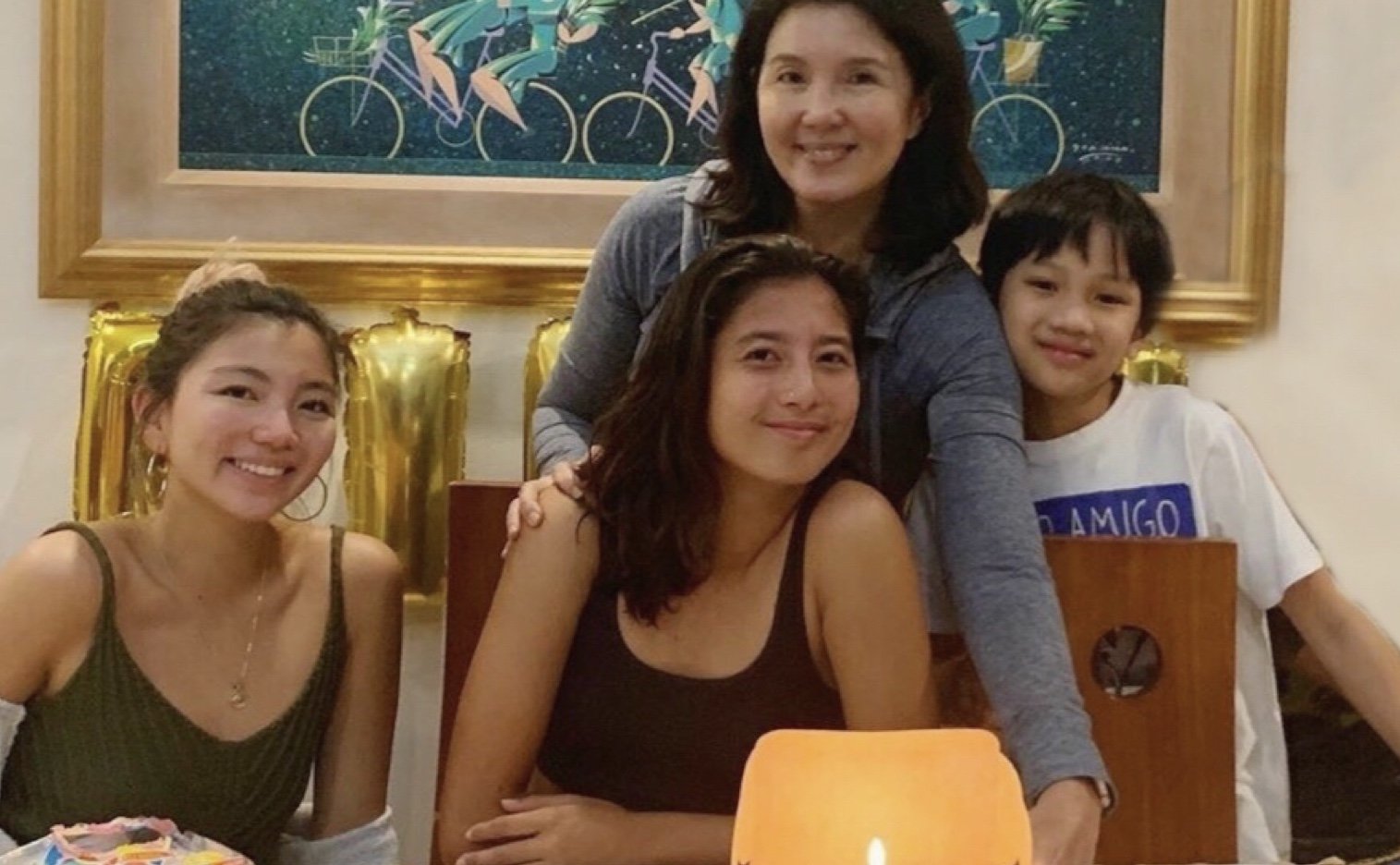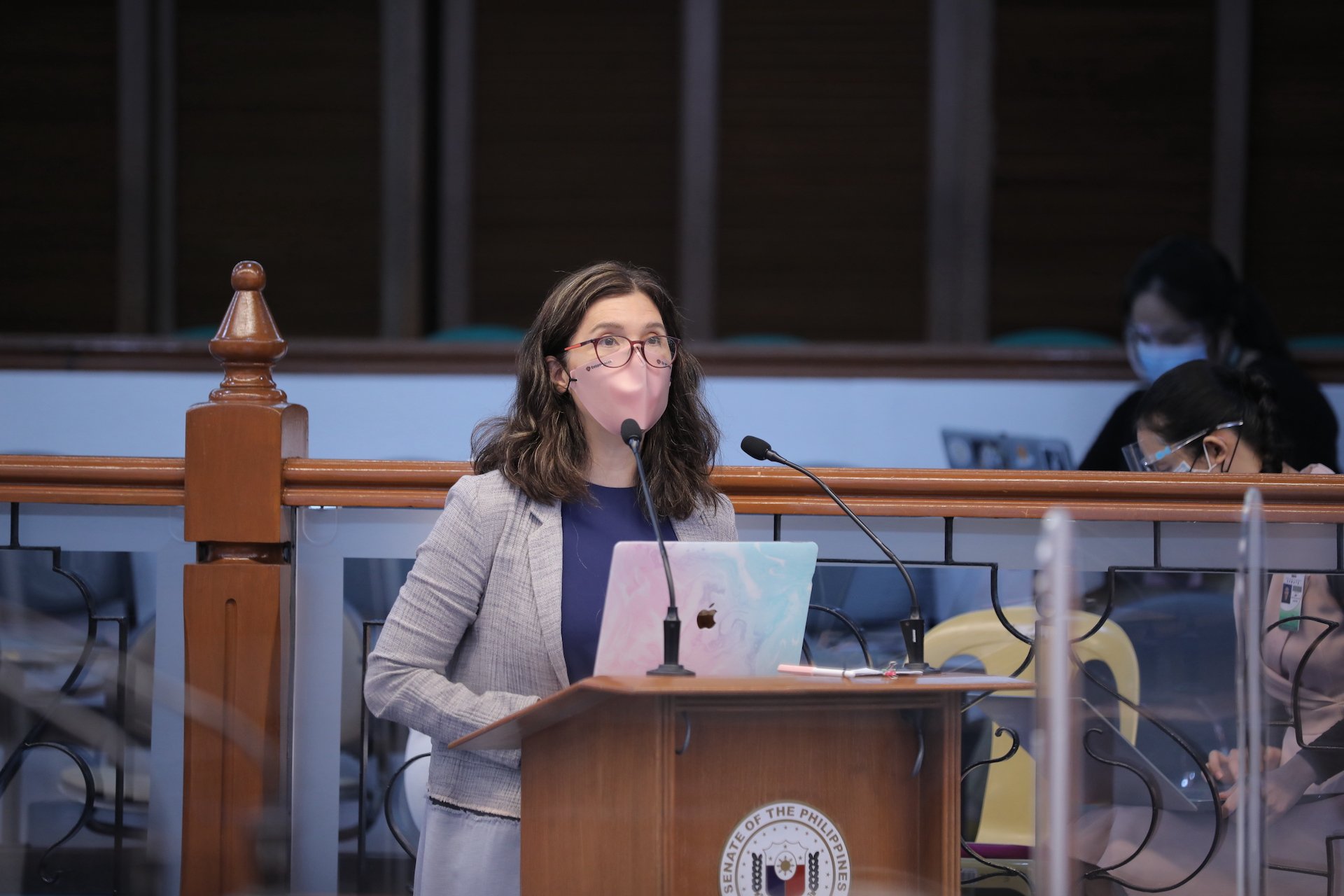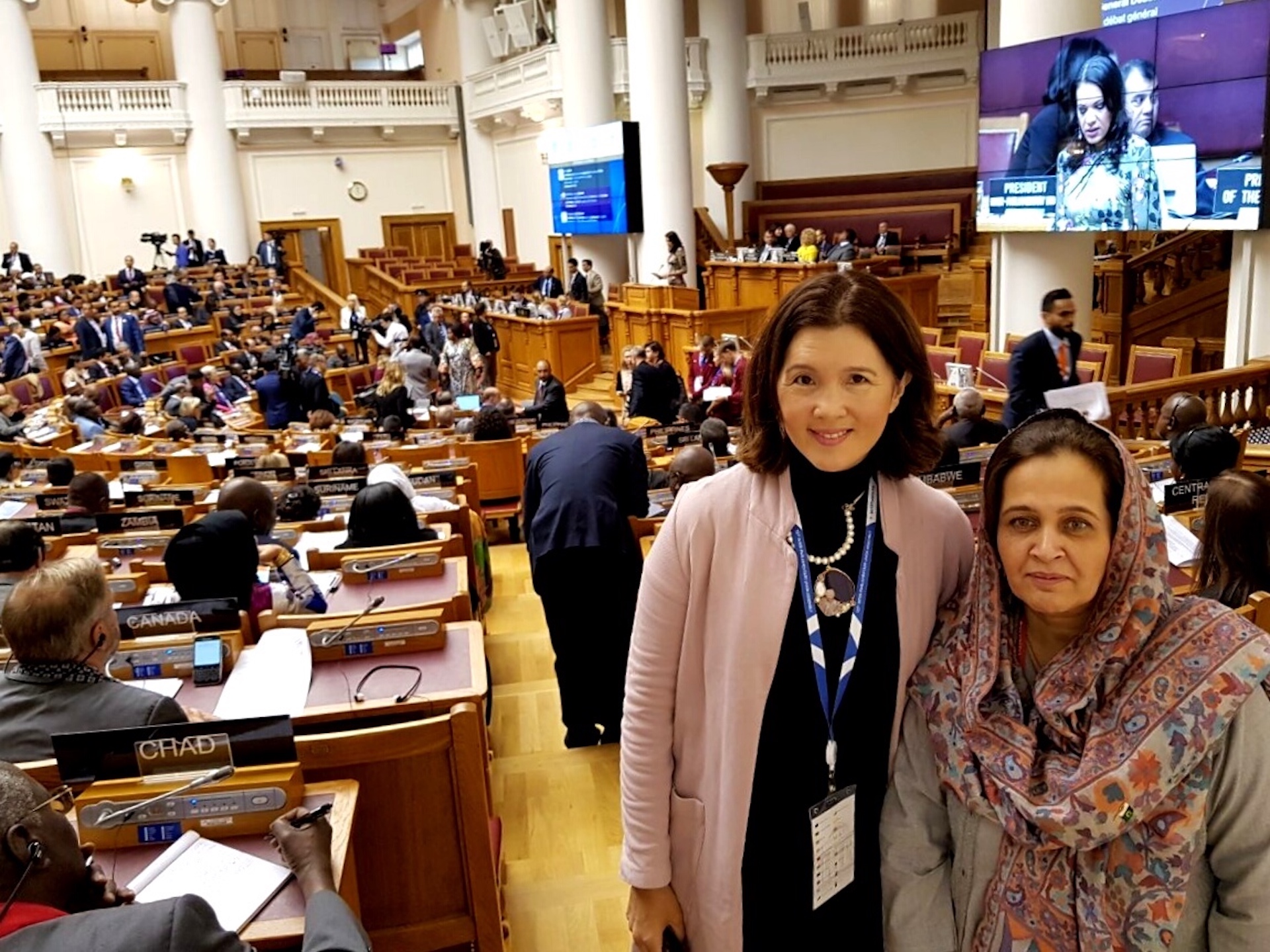Working with like-minded parliamentarians to raise awareness on these three global public health threats allows us to assist and learn from one another Read More
Tag: IPU
Realizations on my first visit to Russia
I had several pre-conceived notions about Russia on my very first visit there, and I was glad to be proven wrong
St. Petersburg, from the view of a runner-parliamentarian
Historic St. Petersburg provided the perfect backdrop to a productive IPU assembly – and a quick morning run I managed to squeeze in
London Part I: Women Power thru Pinay OFWs and the Queens of England
After my conference in Geneva, I flew to London. I had requested the Philippine Embassy to set-up a dialogue with the Pinay OFWs, particularly the nurses. I have been working on our problem brought about the migration of our health professionals and knowing that we had a large number of nurses in the UK, I wanted to meet them.
Before the meeting, I chatted with Ambassador Lagdameo who is an old friend of my mom and dad. He knew my parents when they were still studying in the University of Michigan and actually gave me my very first present when I was born! Imagine that. It was a delight chatting with him. I asked him and Con Gen de Vega about their visit to the queen where the ambassador presented his credentials and they had to bow and curtsy 3x in keeping with protocol.
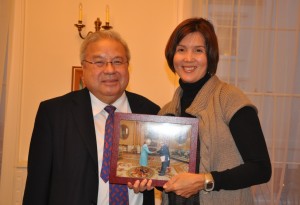
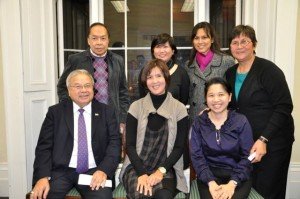
I was delighted to be among such an empowered group of Pinays! Among others, the group included a nurse, teacher, businesswomen, solicitor, domestic worker, chef and urban planner.
We had a lively discussion at the Embassy. Ambassador Lagdameo and Consul General Tess de Vega welcomed everyone. I began by giving the women a background of the issues affecting women and why I believe legislation and policies still need to be improved. I talked to them about the Magna Carta of Women. I also mentioned the Millennium Development Goals and the salary standardization law (see my previous blog on the discrepancy between the salaries men and women. I explained my work in the Inter-Parliamentary Union (IPU), where I currently am the President of the Women Parliamentarians.
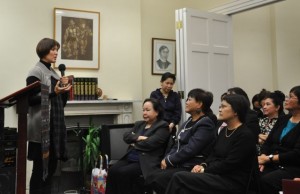
For this talk, I focused on migration issues and how migration affects both the OFWs and the families left behind. I emphasized the need to create more programs directed at the social impact on OFWs and their families.
After my talk, we had an open forum to give the women a chance to air their views and concerns. Many of them spoke of the long hours they endured to send money back home. Many worked 2-3 jobs! But despite the long hours, they felt rewarded and fulfilled in their ability to improve their standards of living and provide for their families.
They also spoke of the difficulty of being away from their families, the frustration of not getting the support and understanding they needed from loved ones back home. Many nodded their head, when one woman spoke about the despair of working so hard and yet feeling unappreciated.
They were a hardy happy set of women, confident about the lives they made for themselves in the UK. They spoke of improving their support system for newcomers to help them adjust to the lifestyle in the UK and the need to encourage Pinays to get better by getting a better education.
The next day I went to the Financial Learning Campaign sponsored by the Central Bank and the Philippine Embassy. I think this is a great program and committed my support for continuing financial literacy programs for the OFWs and their families back home.
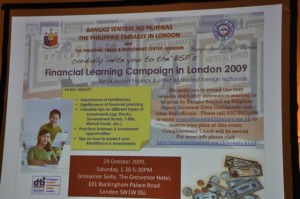
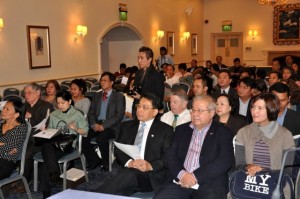
In between those meetings, I was able to visit a few historic sites including the Tower of London and West Minister Abbey. I am an enthusiastic student of history, including English history. And I was thrilled to visit the places, I had only read about in the past. I have always believed that we can learn a lot if we look back into history.

Suffice it to say, at a time where women were subservient to men, England had a succession of Queens that ruled the land. Each of these Queens have their own stories to tell. I’ve been reading about the lives of queens, including Queen Katherine of Aragon (first wife of King Henry VIII), Queen Mary and her sister Queen Elizabeth (daughters of King Henry VIII). If I can find the time, I hope to blog about my thoughts on the lessons we can learn from the women and the Queens of England in 15 and 16 century England.
IPU Meeting in Geneva 2009
Every October, Parliamentarians from all over the world meet in Geneva for the Inter-Parliamentary Union (IPU) conference. I am currently the President of the Women Parliamentarians and our committee of women meets here once a year to take stock of our work and to prepare for the Meeting of Women Parliamentarians the next year (2010 will be in Bangkok).
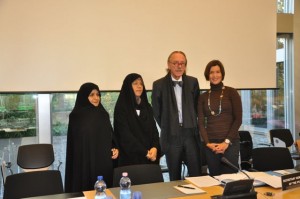
In the Women’s Committee, we discussed the gender dimension on the topics pending in the IPU’s standing committees:
– On the topic of Cooperation and shared responsibility in the fight against organized crime, in particular human trafficking. it was underscored that human trafficking was often under-acknowledged and that the first step was for parliaments to call on governments to recognize the full extent of the problem and develop strategies to address it. This in fact is a big problem in the Philippines and much needs to be done.
– On the Role of Parliament in developing cooperation in order to accelerate achievement of the MDGs, the women emphasized the need to focus on MDGs 4 and 5, on child and maternal mortality. This has been my campaign in the country for the last two years. We need more midwives to the barrios, more birthing facilities and access to information and support re family planning.
– On Youth Participation in the Democratic Process, it was suggested that different strategies be considered to include young people in parliamentary debates and hearings, parliamentary youth forums and political party work. The need for gender-sensitive training was also emphasized. I met with the representative of UNICEF to brainstorm on this item later in the week. This would be a good project to implement back home.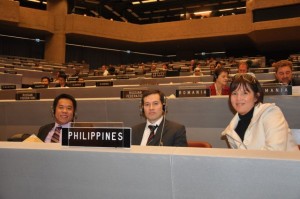
The Secretary General Anders Johnson briefed us on IPU’s campaign “Parliaments Take Action on Violence Against Women.” IPU is urging parliaments to take part in this campaign and organize activities to mark the International Day for the Elimination of Violence against Women on November 25. This has also been my campaign for the past few years (my related blogs on violence).
Our Gender Partnership Group met twice. We looked at the IPU budget and noted that due to budgetary support for gender issues, the IPU has been able to focus on many gender related activities. As for participation in the IPU, the Group noted that there are still 6 countries without women parliamentarians from the Gulf States and the Pacific Islands.
At the second meeting, we met with the Senator from Palau who briefed us about the recent election of two women in the Palau Senate. He explained that Palau is actually a matriarchal society. Women are king makers in the communities but do not themselves run for office. I opined that there may be a need for re-orienting society to support women in leadership positions.
At the General Council Meeting on the last day, the body approved the resolution on the emergency item on Global Food Security. I supported an amendment to this resolution, urging governments to make microfinance funds available, guaranteeing that at least 50% would go to women.
Finally, I presented the report of the women parliamentarians to the body. Although the IPU meeting formally closed on Wednesday, there were still events going on, including the seminar on the Convention on the Elimination of All Forms of Discrimination Against Women, which I would chair the next day.
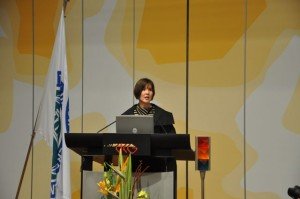
Over the years, I have made friends with parliamentarians from different countries. It is always a pleasure to see them during the IPU meetings. Many of them are seasoned parliamentarians, and I always go home inspired by the people I meet and the lessons I learned.
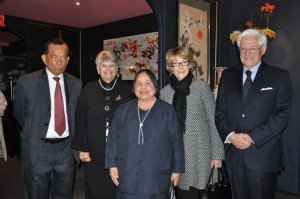
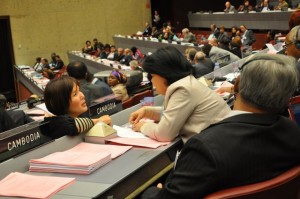
My Mom, the wind beneath my wings

My mom grew up on a farm in Michigan. She met my dad when they were both studying in the University of Michigan. A few years later, she left the only country she knew and migrated to the Philippines, a country with a different culture, lacking in modern facilities that she was accustomed to, not knowing anyone from here except my dad and his parents.
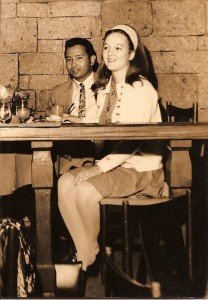
I often wonder what it was like for her, a young 24 year old woman to leave for the unknown. All she really had was my dad and me.
She was pretty much on her own most of the time. My dad worked long hours as a lawyer. It was just me and my mom most of the day. My life revolved around her.
She had a profound influence on me in my formative years. If I looked at my dad as the omnipotent being (translation: disciplinarian, law enforcer), my mom was omnipresent.
She took me everywhere she went – to her school, to the store, to the market, to her dressmaker and the salon. My childhood is replete with memories of doing art work, reading and writing on the floor while my mom worked on her lesson plans and prepared her class materials. I don’t really remember being away from her.
Her demeanor, her kindness, the way she talked, all of these things set my standard for dealing with people. If she ever got frustrated or lost her temper, she must have hidden it from me, because I really don’t recall any incident.
Looking back, she also set my standards as a working mom. As a preschool teacher, she spent her days either in her school or working on her school projects at home. My mom taught and later owned her own preschool. I was her student in Marymount in Quezon City, then JUSMAG school. Later, she put up her own school Ann Arbor School in Quezon Avenue where I also studied. A few years later, she opened Ann Arbor Montessori in BF Homes. I spent many summers playing there and enjoying the Montessori materials.
For the first four and half years, I was her only child. Then my brother Alan was born, but I never felt a diminution in her attention or affection. Years later, my brothers Ren and Lino were born and that still did not change anything between my mom and I.
These days, it’s my turn to be a working mom. And my mom? She is still a teacher and the consummate grandmother. She does not run a school anymore, but she devotes a good chunk of her time to my children.
When my first child, Maxie was born, she spent most of her day with my mom, while I worked. My mom would even take her to my office, so I could breastfeed her. Today, she spends a good number of hours a week with my younger daughter Nadine helping her with her school work. When I’m out of the country or just stuck at work, she takes them to the doctor, out for pizza, to the book store or wherever they ask or need to be taken.
She is also a passionate writer of children’s books and to date has written hundreds of books, many of which she have given away to public schools.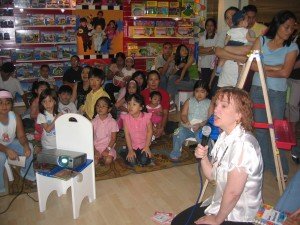
My mom held my hand each day I lived thru my son Gabriel’s illness. She was strong, when I was weak. She was optimistic, when I saw no hope. When my dad got sick, she held us together.
In my work in the Inter-Parliamentary Union, we often discuss issues involving women in the labor force and the challenges women face balancing their responsibilities as homemakers, caregivers and workers. One of the recommendations is for women to rely on their support system, such as extended families.
How grateful I truly am that I have my mom who has supported me thru the years, as a child and even now.

Parliamentarians Meeting (Part 2 of my Ethiopia trip)
I never thought I would find myself in Ethiopia. But then again I never imagined I would be a senator. So, here I am a senator representing the Philippines and presiding over the meetings of women parliamentarians of the Inter-Parliamentary Union (IPU). I was elected President last year in South Africa and as such, travel quite a bit ensuring that there is a gender perspective in the discussion of all issues, whether it be climate change or the global financial crisis.
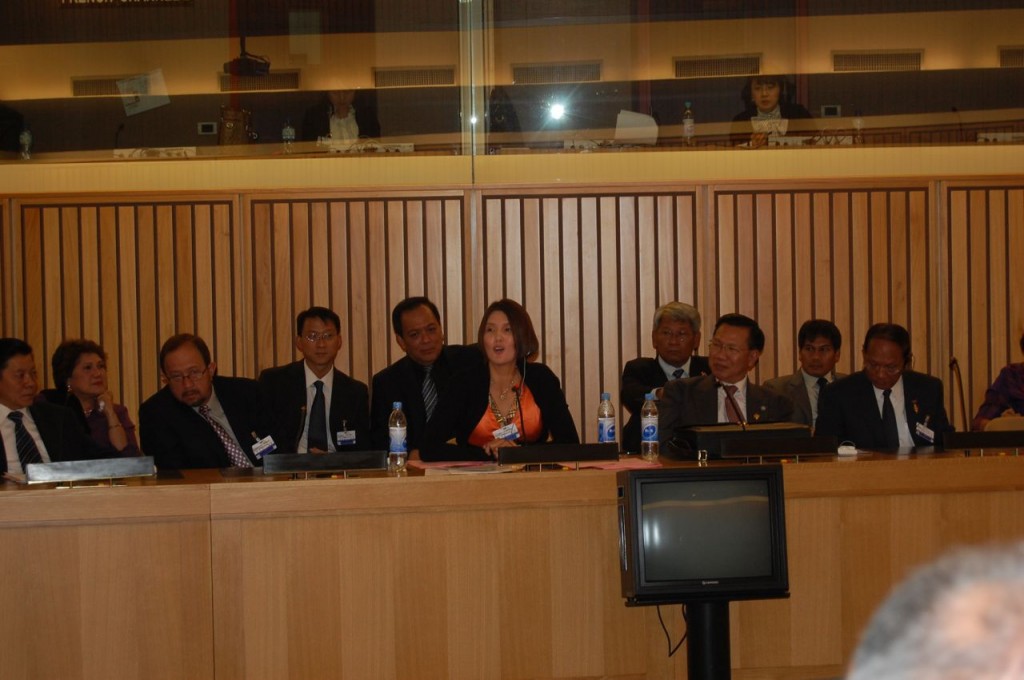
The IPU’s philosophy is that true democracy can only be achieved when men and women work as partners in the governance of their countries. Thus, the IPU provides a fora for the discussion and exchange of ideas on a wide range of topics among women parliamentarians. It also initiates meetings and discussion panels that promote the participation of women in the political process.
The Meeting of Women Parliamentarians took place on Sunday, April 5, 2009, the highlights of which were:
The financial crisis and its effect on women:
What was noteworthy was the consensus that women and children are the ones primarily hit by the financial crisis. Food supply is affected, budgets for and access to health care and social services are at risk. Women, being the homemakers are the first to feel and suffer these effects. The women parliamentarians voiced their concern that any discussion and eventual solution to this crisis should include a gender perspective.
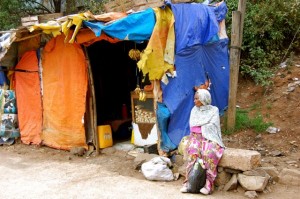
Climate Change, sustainable development models and renewable energies:
The women broke up into two groups to debate this topic from a gender perspective. The first group focused on climate change and the second group on renewable energies. This was a very interesting topic and I found myself rushing from one conference room to another to participate and get as much from both discussions as I could. I will blog about this separately.
Debate on Women in politics. This session began with a report tracking the number of women in parliaments around the world and highlighting progress and setbacks. The floor was then opened for interventions. I shared my ideas on the progress and setbacks in the Philippines which I believe is similar in many countries.
Other topics of interest were:
Countdown 2015: Millennium Development Goals.
One of our panel discussions was on the Countdown 2015. This is a program involving UNICEF, WHO and various partners that monitors the progress of different countries in achieving the millennium development goals. Like the Philippines, Ethiopia is on target to meet goal no. 4 which is the reduction of the child mortality rate. Both the Philippines and Ethiopia are not on target for goal no. 5, which is maternal mortality rate. I have been working on this in the senate and will report on this again soon.
After this session, I joined some of the parliamentarians in visiting a health center as part of the immersion program of the World Health Organization.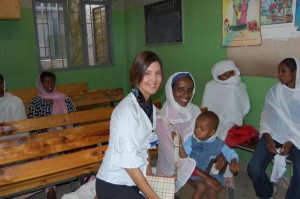
Adolescent Girls: The girls left behind?
The panelist presented the sad reality that adolescent girls are vulnerable to gender-based discrimination and gender inequalities. They are exposed to violence in the very places where they are suppose to be protected their homes, communities and schools. They are also at risk to HIV/Aids and other sexually transmitted diseases. Adolescent girls, as first time mothers also are high risks for maternal mortality. I participated in this discussion and brought up the plight of our adolescent girls who are victims of abuse in their own homes, particularly where the mothers are away at work or OFWs.
Gender Partnership Group.
The Gender Partnership Group of which I am a member, monitors the number of women in parliaments around the world. They likewise track the attendance of women parliamentarians at the IPU and meet with the representatives of countries that don’t have women parliamentarians with the objective of understanding what the obstacles are and providing assistance to promote women’s involvement in their parliaments.
Meeting with representatives of the US Congress:
I had the pleasure of meeting representatives of the US Congress. Believe it or not, the US has not been a member of the IPU for about a decade. My task was to present to them the work of the women parliamentarians at the IPU. One of the US representatives Nancy Wilson talked about the welfare code she drafted when she was a Senator under Bill Clinton’s administration. She will be sending me more information on this.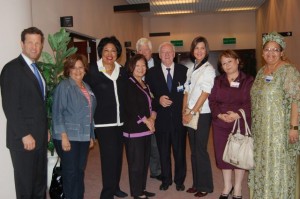
Meeting Lucy, the first homo sapien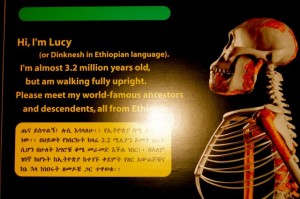
The Ethiopians take pride in being one of the cradles of human life. Thus, their theme: Ethiopia: Where it all began. I made sure that I visited their national museum, which turned out to be the only downtime activity I had. The exhibit of fossils found in excavation sites in Ethiopia and the explanations were very interesting.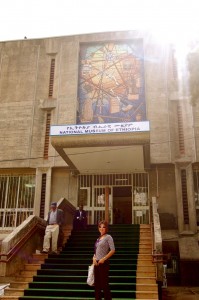
The full report of my work in the IPU will be on my official website soon.
My Life in a Suitcase (Part 1 of my Ethiopia trip)
I hate living out of a suitcase. But I have to. My job requires that I travel quite a bit. Anywhere from a short 24 hour trip somewhere in the Philippines or longer trips anywhere in the world. As of this writing I am in Addis Ababa, Ethiopia attending the Inter-Parliamentary Union conference, where I am currently president of the women parliamentarians.
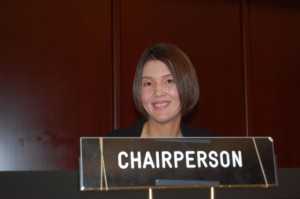
I always always pack with the intention of traveling light, but it just never happens. There are just too many things I need to bring to keep me within my comfort zone when I am away from home. What I bring depends on where I’m going, what I’m doing there, how long I’ll be gone.
Business Attire
A lot of my trips are work related so need to bring a few business suits, accessories and shoes that go with it. Trying to mix and match is key so I don’t have to bring too much stuff.
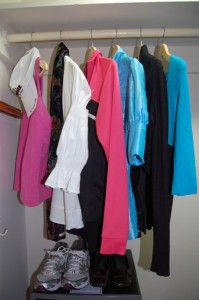
Casual Attire
My attire of choice will always be casual and comfortable. That means, anytime I can get out of a business suit, I will. I always bring a pair of jeans and some casual tops.
Work-out gear.
I will never travel without my running shoes and gear. This changes slightly depending on the weather and whether I will be doing indoor training or outdoor. If it’s a city I am familiar with and I know its safe to run, then I will definitely be running outdoor, even in the cold.
If I have a race coming up and need to do run intervals, then I’ll bring my garmin gps so I can monitor my pace and distance while running outdoor.
Ipod shuffle
I almost always bring a swim suit, goggles and caps. A lot of hotels have pools and swimming is always a relaxing work-out for me.
Food.
I always bring my own snacks. I pack nuts, wheat crackers, pretzels and low fat cheese sticks. If I’m living out of a hotel, I also bring instant oatmeal , cerelac and granola which I mix together. This is the easiest most nutritious breakfast on the go. If my hotel comes with free breakfast, well then, that’s another story.
My emergency medicine ( a lot!), vitamins and food supplements, coded by the number of pills I need to take per day “ some are once a day, 2x, 3x and 4x.
Electronics
Gadgets and toys.
My lap top. For all the obvious reasons.
My kindle “ this is my latest treasure. It’s amazon’s e-book. I have some 30 books in my kindle right now. Just knowing I have this wide selection of reading material, keeps me calm.
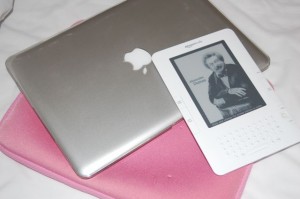
My celphones. “ this is when I bring 2 phones. My regular phone and an extra one to use with a local sim card which is always cheaper.
Portable luggage weighing gadget “ amazing gift I got from my mom. I will never have to stress about my luggage being over weight again!
Brain game “ one of my compact games that challenge my mind and entertain me when I’m bored.
My girlie things
Make-up. If it’s a business trip, I need to bring a wider assortment of make-up. I’ve learned to simplify this and can fit everything into one small make-up kit. Otherwise, I survive with my bronzer and lipstick.
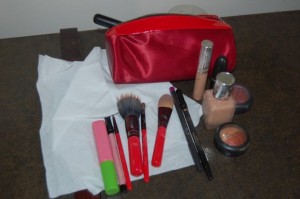
My skin care products including sun block.
I’ve kinda stopped bringing a dress watch. My sports watch is beige/bronze which will work with most of my outfits. If its really off, I just take it off.
One or two custom jewelry to wear with my business suits.
Mini Office.
I just recently bought this collection of stapler, clips, post its etc.
Papers and reports I need to read and review.
So there. After all these years of traveling, I’m still going over this list, thinking of ways I can travel lighter but still be happy.
Women: The Unpaid Worker
All over the world, women perform unpaid work as homemakers and care-givers. Imagine this: Ms. A is a mother and takes care of her three kids and her elderly parents. She cannot work outside the home. Compare this to another woman, Ms. B who works outside her home. Ms. B cares for the children of another family. Ms. B is a paid worker for caring for other children. Her work is recognized. She will obtain benefits like medical insurance and retirement. Unlike Ms. A. who is invisible to the productive world, has no protection, no rights and benefits.
What can we do to uplift the plight of people, mostly women like Ms. A? This was the topic of the Inter Parliamentary Union’s conference, which I chaired at the United Nation’s last week. I summarized some of the key points of the speech I delivered at the session of the Commission on the Status of Women.
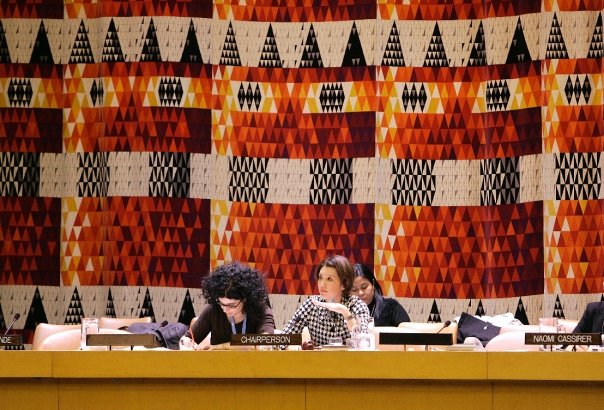
We need to reduce the burden of unpaid work and promote equal sharing of responsibilities between men and women. Historically, women have been the homemakers and care-givers. But today, many women need or want to be part of the work force. This, men need to take on more responsibilities at home.
Many countries have ratified relevant labor conventions. But each country needs to review their national policies and legislation that relates to workers with family responsibilities, that recognize women as part of the labor force, that provide maternity protection, breast feeding support, reasonable hours of work, and so on.
In determining the right policies, we need to emphasis the importance of a gender balanced approach to care-giving (as opposed to focusing on the woman alone) and the need to develop measures to support a more active role of men in care-giving.
There needs to be a change in mind-set. Likewise, action needs to be taken to address gender stereotypes. This begins with education and promoting gender equality and addressing gender stereotypes in school curriculums and grassroots programs.
There also needs to be institutional changes, say in parliaments. We discussed the difficulties faced by women in politics. Parliament was historically a male only profession. Many of its traditions still endure, making it difficult for women to enter or survive (more on this in another blog).
We also noted that during time of economic uncertainty, governments may tend to reduce spending on social services. The consequences of this move would be tremendous. This would put more stress on an already over-burdened health and social services/welfare sector. Without reliable health care and social services, women again will bear the bigger burden “ a burden that will go unrecognized and unprotected.
Back in our respective parliaments, we need to look at the tools at our disposal to bring the value of unpaid care work to the fore. We need to question our national accounts systems, make use of time-use surveys and most importantly, use the national budgetary process to take into account the contribution of unpaid care work and provide support to those who perform it.
As an aside, I note that in the Philippines, there are a lot of families where the man is now the primary home-maker and care-giver. For more reason we need to address gender stereo-types. These stay-at-home dads, need the support and in many cases the training needed to be good home-maker and care-givers.
In conclusion, we need to to reassess how we view women’s unpaid work. We need to put in safeguards and protection for these women (and men). We need to recognize and reward women’s various contributions to the economy and promote a more gender balanced approach to the sharing of responsibilities.
n.b. this is part of a series of articles I am writing in connection with our observation of Womens month and the conferences/meetings I attended in New York.

